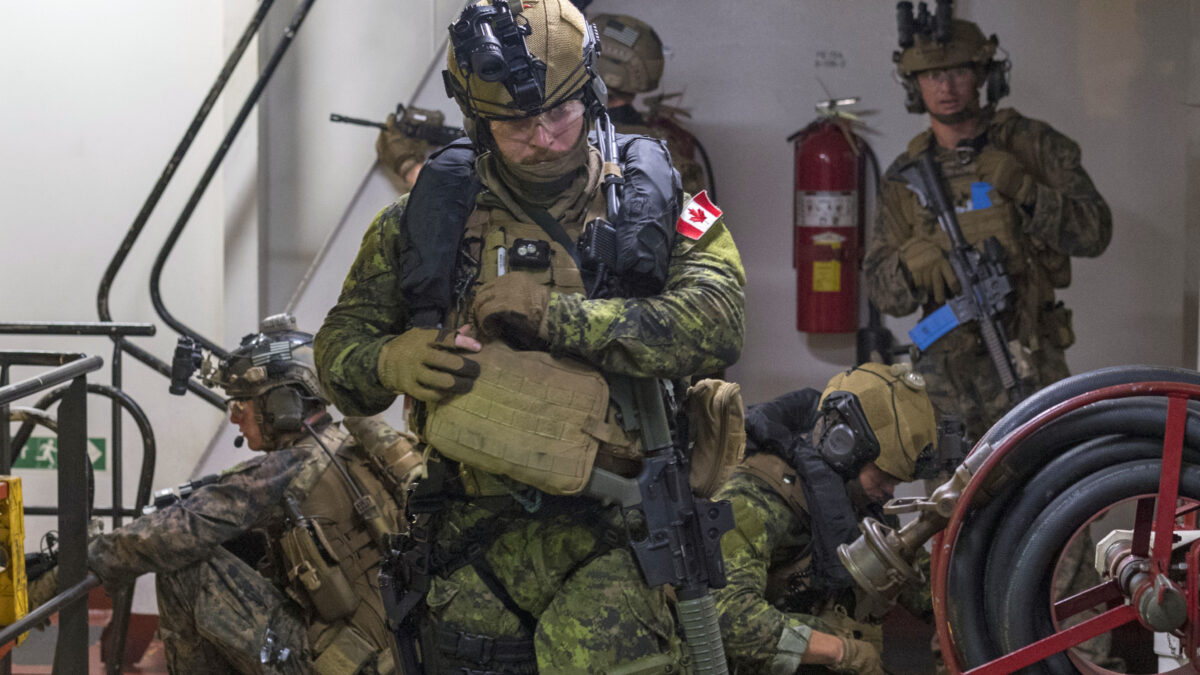Taking a moment for reflection, 2023 was simultaneously a year of pessimism and optimism.
On the one hand, budget cutbacks were announced earlier in 2023 that adversely affected the delivery of services to Canadians. For Department of National Defence (DND) operations particularly, these cutbacks had an immediate impact on defence services.
On the other hand, many long-awaited procurements were announced in 2023, such as the Future Fighter Capability (January), Strategic Tanker Transport Capability (July), Multi-Mission Aircraft (November), and Land C4ISR (December), to name a few.
Perhaps a more important announcement was the notice by Public Services and Procurement Canada (PSPC) about changes to professional services. Aiming to strengthen integrity and controls on professional services supply arrangements, these changes will have a ripple effect across the defence industry. Compared to the handful of major equipment acquisitions, professional services contracts awarded each year number in the hundreds.
The tipping point for this change was a series of statements made during the inquiry into the ArriveCAN app scandal. Among other allegations, testimony revealed that two consultants received millions in government contract dollars to develop the app, except they subcontracted all the work.
In this business, we understand this is not a new phenomenon. At ADGA Group, we have previously written about the pitfalls of government contracting for capacity rather than for capability (Vanguard, August/September 2023|Volume 30|Number 4), so it is with much optimism for the future that we applaud and welcome this change by PSPC.
One desired outcome stated by PSPC is to reduce the number of contracts focused on task-based (i.e. “capacity”) contracts while increasing the number of solutions-based (i.e. “capability”) contracts. At ADGA, we have already transformed our own business over the last several years—from a focus on task-based to solutions-based contracting.
ADGA has skilled and experienced employees, many of whom currently fulfill government-managed task-based contracts. However, we know that real value-added outcomes are achieved when employees work as a team and are solutions focused, responsible and accountable.
While PSPC’s notice signified an immediate shift in approach, it is naïve to think it will be quick or easy. Focusing proposal evaluation on past vendor performance rather than individual resumes is to be commended, but the government has little experience doing so for professional services bid evaluations. Unlike in the United States, Canada has no history of using vendor performance in government procurement, so it’s unclear what data would be used and how (or whether) it would be leveraged to award evaluation points or to reduce points.
Another consideration is the need to tighten up the definition of a bidder. When bid teams or joint ventures are formed primarily to score maximum evaluation points, confidence diminishes as to whether the entire team will deliver. This behaviour is an extension of the staffing-agency mindset that led to the ArriveCAN debacle. No wonder recent examples have eroded trust between government and the defence services industry.
And yet, Canada is home to agile, tech-savvy companies that offer innovative solutions toward better defence procurement. As a services and solutions ally to DND for 57 years, ADGA contracts directly to many government departments and is a significant and longstanding employer of veterans. We are also a tier-2 partner to other defence companies delivering on their government contracts.
ADGA applauds this PSPC notice and has championed for this change for some time. Moreover, we want to leverage our rich history as a government ally to help rebuild trust in defence services contractors.
ADGA is optimistic that if government collaborates with industry on different evaluation methods and terminology, together we could avoid choosing the wrong criteria, unintended consequences, and making the new situation worse than the one being resolved.

